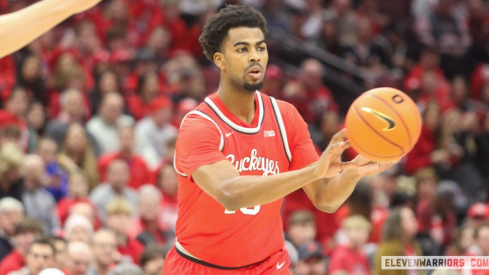Former North Carolina defensive end Beau Atkinson commits to Ohio State.
When I was a kid, I always wanted to ride on the Concorde.
The Concorde, for those not familiar with it, was a supersonic badass Passenger Plane Of The Future tested and built in the 1960's and operated through the early 2000's. It had a cruising altitude nearly twice that of normal airliners, could complete long distance routes over twice as quickly as any other passenger jet on the planet, and had this sweet retro-futurist sci-fi pulpy look to it that wouldn't look out of place on a Fantastic Four cover from 1962.
It was cool and new and also an utterly stupid waste of time and money aggressively subsidized by the British and French governments for way, way too long.
The thing simply cost far too much money to operate; it turns out that flying half empty planes from New York to London once or twice a week wasn't a great business model, particularly when round trip tickets on the Concorde were three or four times more expensive than a comparable ticket on a normal flight. I'm sure that for a while there it was super dope for Pierre and Jeeves to take pictures on top of the Eiffel Tower after lunch and enjoy front row seats at Showtime at the Apollo a few hours later, but after a while dropping the 2020 equivalent of 15 grand round trip probably wore a little thin.
And as I mentioned, the same probably held true for the countries that propped it up via subsidies. France the United Kingdom spent the equivalent of literally tens of billions of 2020 dollars jointly developing the Concorde project, and you would think that once they realized the thing was a bust sometime in the early 1970's, they wouldn't continue throwing money at it for another three decades.
But they did!
Economists and other observers of human behavior sometimes call this mentality "sunk cost" or the "escalation of commitment."
It's a trick of psychology that casinos and arcade games and shifty playing card scammers wearing fingerless gloves exploit to help them scam people into giving up all of the nickels in their piggy banks. It's simple to explain: people are often inclined to allocate increasing amounts of their own time or money into a hopeless cause because they feel the need to justify their current level of investment.
In other words, if you already spent five dollars trying to get that adorable Pitt the Elder plushie out of a crooked crane game at Cedar Point, what's another five bucks? After all, you have to get something out of it, right? And then, of course, 30 dollars later the guy working the counter feels bad for you and just opens up the machine and gives you one.
That generosity won't happen in Ann Arbor.
Jim Harbaugh will take as much money as Michigan will give him.
I can't pretend to have a perfect bead on the inner workings of the brains of Michigan's administration, but I have to believe that at this point the chief reason why they're currently thinking about a long-term extension for Harbaugh's contract is that they're caught in the throes of a logical fallacy.
Jim Harbaugh's current contract looks like this (courtesy of MLive.com):
[In] December 2014, [Harbaugh] inked his original deal for a $500,000-a-year salary and $4.5 million in additional compensation.
Michigan tacked on an annual life-insurance policy in August 2016 that included a $2 million premium advance, to be paid to Harbaugh each year through the balance of his contract. Factor in a contract-stipulated 10 percent raise for Harbaugh in January 2018 and you arrive at the $7.5 million figure that’s widely cited these days.
In 2020 that figure will be over $8 million, and the reason why there's more than a little hand-wringing in Ann Arbor is that Harbaugh's contract expires in 2021. This means that right about now is around the time when Michigan would potentially settle on an extension (or not) for their khaki-clad football man.
So will they?
I dunno! It depends on how comfortable Michigan fans are with having the third-highest paid coach in football win nine games every season but lose 75% of the tough ones, especially since the No. 1, 2, and 4 guys have all won national championships.
Mark Dantonio has a winning percentage of .667 and is being regarded as MSU's greatest coach ever.
— Gary Ridley (@GaryRidley) February 4, 2020
Jim Harbaugh has a .723 winning percentage and sports talk wants him fired from Michigan.
Seems like they're fairly comfortable! For all the crowing about "Harbaugh killing Dantonio" from the internet Michigan crowd the last few days, it says something that they've managed to hype themselves up over a 3-2 record versus Michigan State as opposed to their record against other traditional powers in the Big Ten (they're a combined 5-10 against Wisconsin, Penn State, and Ohio State since Harbaugh took over).
Add that to a 2-11 overall record against top 10 opponents and four straight bowl losses and suddenly a rational human being starts asking Wolfram Alpha how long it'd take to physically burn $8 million dollars.
But sports fans and sports administrators are not always rational human beings. It's hard to cut bait on a coach that is demonstrably (if marginally) better than his predecessors, and it is especially hard to cut bait on a coach if you feel that the amount already invested in the guy demands you keep him on the hook. If Harbaugh is extended, and recent chatter suggests that he will be, Michigan will undoubtedly have to give him a contract of at least three more seasons at a minimum of $8 million per year.
To me, this whole process is fascinating in part because Ohio State doesn't have to engage in any of this psychic angst. Ryan Day is going to make $4.5 million dollars a year through 2023, and the only way that'll change is if his performances dictates it; if Day kicks ass and wins a natty or maybe another Big Ten title or two, Ohio State will be happy to renegotiate at a higher salary to keep him around longer. If he ends up being a one-season fluke, well, you can always either fire the guy or not renew his contract.
Either way, what Ohio State's coaching outlook is going forward will be decided by how well the team performs on the field, and Ryan Day has already set expectations sky-high.
Michigan doesn't have that luxury. Instead, they're stuck with a generally competent but not great coach who has set expectations so low that, among other barely-impressive accomplishments, winning three of five against a secondary rival is seen as reason enough to pay the dude $8 million dollars a year. And as long as Harbaugh can guarantee nine wins per season and gosh, I don't know, another Citrus Bowl win, U of M will pretty much have to pay him even more for even longer.
The Concorde finally shut down service in 2003 after a fatal crash, the severe downturn of the aircraft industry after September 11th, and people getting sick of paying a premium price to get somewhere a few hours earlier. An experiment that spanned five decades and cost tens of billions of dollars in unreturned investment eventually amounted to nothing because the British and French governments just couldn't stop themselves from throwing money at an unsolvable problem.
From SI.com:
In the meantime, Michigan understands how important it is to set Harbaugh up for success both in the short term, with the 2021 class, and the long term, with the 2022-24 classes.
"Just think how bad it would look if he beats Ohio State this year and goes to the Big Ten title game and he has one year left on his contract about 10 days from a 2021 Signing Day and we're missing out on in-state kids because there was uncertainty about Jim's future here," one of the officials said.
Okay, sure, we can ask that: what if Harbaugh goes ahead and does both of those extremely improbable things in one season that he hasn't been able to accomplish even once in five?
Or maybe this is a better question: What's it going to take for Michigan to get rid of Jim Harbaugh?


